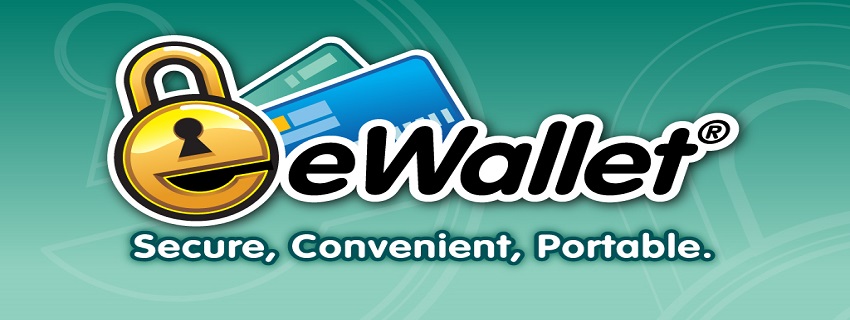All you want to know about E-wallets
Ever since the reality of demonetization has struck us, we are all turning to alternative modes for cash transactions. While cheques, NEFT and RTGS payments continue to help us sail through, a novel mode for efficient cash dealings is E-wallets. Though most of us wish to imbibe the reigning benefits of technology, we often feel stuck due to the lack of awareness or the fear of genuinity the source carries. Below you can find an exhaustive guide to help you decode the mysteries of E- wallets:
What is an E-wallet
E-wallet or Mobile wallet is an online prepaid account that stores the required amount of money in a digital form, which can then be used as and when required. Basically it allows you to store multiple credit cards and bank account numbers into one exhaustive account, thus eliminating the need to enter such information each time a transaction is made. Using an e-wallet, you can make purchases or even transfer funds to others with the help of its integrated software system. In other words, e-wallets holds pre-loaded online money, similar to the physical wallet that carries the actual currency for you.
Types of E-wallet
From retail organizations to telecoms and banks, there are many players in the market who are providing e-wallets to their clients. Depending on the type of transactions you can perform with them or the means in which one can use them, E-wallets can be classified into three broad categories as below:
- Closed E-wallets: These kind of e-wallets are used by entities for facilitating the purchase of goods and services exclusively from it. They do not permit buying or transacting with any other vendor and also do not allow you to withdraw the amount to yourself. Popular examples of such wallets are those provided by Flipkart, Myntra, MakeMy Trip and so on. Once you load a stipulated sum onto these wallets, it can be use only to transact internally with the brand. It is also an account where your money would get credited in case of a refund due to cancellation or return of the merchandise bought.
- Semi-Closed E-wallets: Unlike closed wallets, semi- closed e-wallets allow you to transact with a number of merchants that have registered themselves with the wallet-providing entity. As per the RBI, such a wallet can be used for goods and services, including financial services. Popular examples of such wallets are Paytm, Mobikwik, Oxigen wallets, Freecharge, Citrus wallet and so on. However, these wallets do not allow the holder to opt for cash withdrawals and redemptions. The registered sellers on the wallet providing portal can however transfer the accumulated cash balances to his or her bank account by adhering to the terms and conditions as specified.
- Open E-wallets: As the name suggests, open wallets can be used for purchasing goods and services, including fund transfers at any card swiping (POS) terminals and can also be used to withdraw cash at ATM’s or with the help of Banking correspondents. This category of wallets can only be provided by or in affiliation to banks and comes with its own withdrawal limits. Popular open wallets include M-Pesa (run by Vodafone in association with ICICI Bank).
Important pointers on the use of E-wallet
- Since E-wallet is nothing but an online money account, all you need to do is, simply download the e-wallet app of your choice on your smartphone. Semi- closed wallets such as Paytm are gaining immense popularity due to their non-complex mechanism and ease of usage. To have your own personalized e-wallet, signup with your mobile number, link you bank account to your e-wallet and get started!
- Transaction fee and limits on e-wallets: A user can pre-load anything from Rs.1 to Rs. 20,000 (limit increased from Rs. 10,000 to Rs 20,000, valid till December 31st 2016 as per RBI guideline unless extended) on their e-wallets per month. (This limit can however be pushed to Rs.1,00,000 by upgrading the wallet, subject to certain checks in order to minimize fraudulent activity and make your wallet more secure). While a buyer will not need to pay any additional amount for the transaction, merchants using e-wallets to accept payments will have to shell out a minimum fee per transaction. The maximum amount that can be transferred from one e-wallet to another in a single transaction is Rs.5000. Similarly, the maximum balance that can be transferred from one e-wallet to another or from one e-wallet to the bank in a month is Rs.25000. Further, if you wish to transfer your funds from the wallet to the bank, the wallet -provider can charge you anywhere between 1% to 4%, depending on whether you are a KYC compliant customer or not.
- E-wallets and Interest: While few wallet providers may earn some interest for the funds that lie in their e-wallet databases, such interest is never deferred onto the customer. Simply put, if you have money lying in your e-wallets, as a merchant or otherwise, it will not earn you any interest. However, most wallets provide cash back schemes to their customers on transactions. This is nothing but a discount or a rollover of cash within the e-wallet itself, since such money cannot be withdrawn by the user anyway.
- E-wallets and safety: Since all e-wallets inherently abide by security regulations specified by the RBI, they are as safe as you bank accounts. Even in a scenario where you end up losing your mobile phone, your PIN/Password can protect you from someone having unauthorized access to your mobile wallets. However, as your best bet, you should keep the anti -virus program on your phone updated at all times to avoid thefts. While you cannot reach out to the banking ombudsman in case of any payment issues or unwarranted transactions on your e-wallet, the wallet providers have their own fraud detection schemes and customer support teams to help you out.
The novel payment systems carry with them a tense air of mystery and suspicion; but it is only the changing times that are constant. With over half the population incorporating digital payment modes such as e-wallets in their day to day lives, it certainly goes to tell of the easy it can bring to you on a daily basis. With a few safety precautions at hand, every one of us can make the most of e-wallets and walk the fresh paths that is cashless economy further entails!




